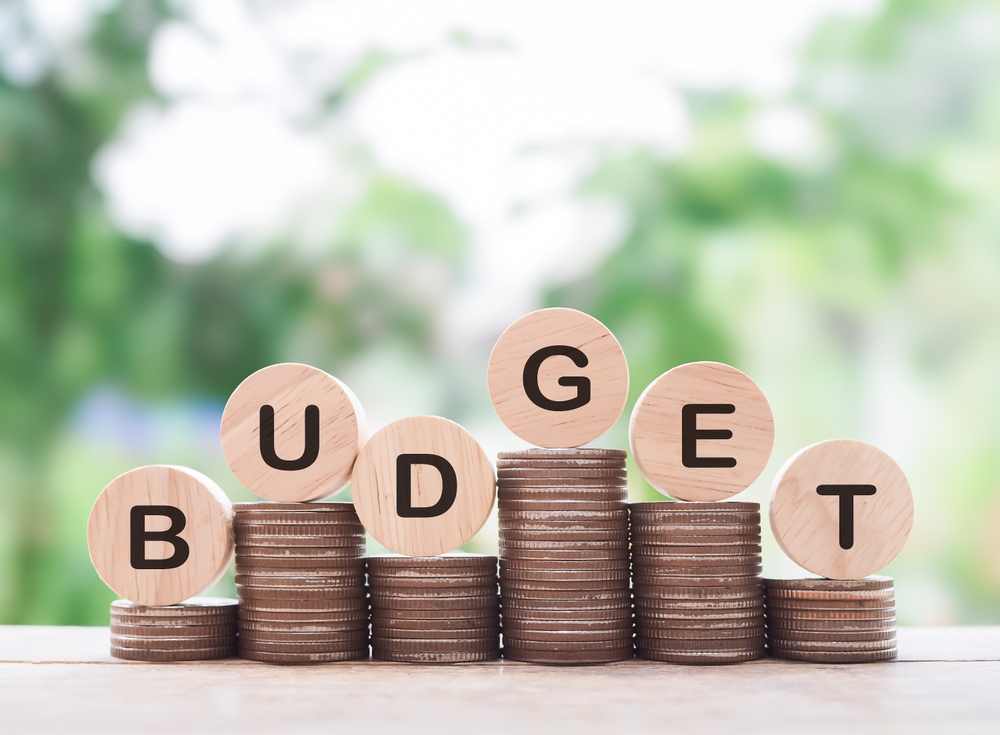Being broke is a struggle many of us know all too well. It seems like no matter how hard you work or how much you cut back, you’re still living paycheck to paycheck. But don’t worry; you’re definitely not alone in this financial boat, and more importantly, there are ways to patch up the leaks.
1. You’re Stuck in the Instant Gratification Trap

Ever find yourself reaching for something the moment it catches your eye? That’s instant gratification at work. This tendency to fulfill desires immediately can drain your finances faster than you might realize. According to a study by Psychology Today, people who can delay gratification tend to have better financial stability. If you’re always opting for immediate pleasure, you’re likely spending money on non-essentials that don’t contribute to your long-term goals. By taking a moment to pause and reflect before making a purchase, you can better align your spending with your values.
To counteract this habit, try setting a 24-hour rule before buying anything that’s not a necessity. This gives you time to evaluate whether the item is worth the expense. Additionally, having a clear budget in place can help you prioritize essential expenses. Sometimes, re-examining your priorities can reveal that you’re spending on things that don’t actually contribute to your happiness or long-term goals. By breaking free from the cycle of instant gratification, you’ll not only save money but also appreciate your purchases more.
2. You Don’t Track Your Spending

If you don’t know where your money is going, it’s no wonder you’re always broke. Not tracking your spending is like driving with no map—you might get somewhere, but it won’t be where you intended. According to Bankrate, a significant number of Americans do not have a budget, and this lack of financial planning can lead to overspending. When you don’t track your expenses, you miss out on understanding your spending habits, making it impossible to identify areas where you can cut back.
Start by writing down every purchase for a month, whether it’s a $5 coffee or a $500 appliance. Use budgeting apps or spreadsheets to categorize and analyze your spending. Once you have a clear picture, you can make informed decisions about where to cut corners. This process might surprise you by revealing small, frequent expenses that add up to a significant amount. When you know where your money is going, you can make adjustments that help you hold onto more of it.
3. You’re Living Beyond Your Means

Living beyond your means is a surefire way to remain financially drained. It’s tempting to keep up with societal standards or the lifestyle of your peers, but this can lead to financial strain. The National Endowment for Financial Education warns that overspending can result in debt and a lack of savings for emergencies. When you spend more than you earn, you’re essentially borrowing against your future financial security.
To get a grip on your finances, start by creating a realistic budget that reflects your actual income. Focus on living within or below your means, which may involve some lifestyle adjustments. This might mean choosing a less expensive apartment, skipping luxury vacations, or cooking at home more often. By resisting the urge to spend beyond what you can afford, you’ll begin to build a cushion for unexpected expenses and long-term financial goals.
4. You Have No Emergency Fund

If you’re always broke, one of the reasons might be a lack of an emergency fund. An emergency fund serves as a financial safety net, allowing you to handle unexpected expenses without going into debt. Without it, any surprise cost, such as a medical bill or car repair, can derail your finances. This lack of preparation can force you to rely on credit cards or loans, which only add to your financial burden over time.
Begin by setting a small, achievable goal for your emergency fund, such as $500. Gradually increase this amount as you become more comfortable with saving. Aim to have at least three to six months’ worth of living expenses set aside eventually. This fund gives you peace of mind and a buffer against life’s unpredictability. Remember, the key is to start small and stay consistent; even modest savings can grow significantly over time.
5. You’re Drowning in Debt

Overwhelming debt can be a major reason why you’re always broke. High-interest rates and minimum payments can create a cycle that’s hard to escape. When your income primarily goes towards repaying debts, it leaves little room for savings or other essential expenses. This constant stress can affect not just your finances but your mental well-being too.
Develop a strategy to tackle your debt head-on. Start by listing all your debts and their interest rates. Focus on paying off the highest interest debts first while making minimum payments on others. Consider consolidating your debts to a lower interest rate if possible. By systematically reducing your debt, you’ll free up more of your income for other areas of your life, gradually improving your financial health.
6. You’re Not Setting Clear Financial Goals

Without clear financial goals, it’s easy to spend money aimlessly. Vague intentions like “saving more” aren’t effective. Goals should be specific, measurable, achievable, relevant, and time-bound (SMART). Without this clarity, you might find your money disappearing on things that don’t contribute to your long-term happiness or security.
Start by defining what you want to achieve financially, whether it’s buying a house, retiring early, or traveling more. Break these goals into smaller, actionable steps. For example, if homeownership is your aim, calculate the down payment required and work towards saving that amount. By having clear goals, you can create a roadmap that guides your financial decisions, helping you allocate your resources more wisely.
7. You Avoid Talking About Money

Money can be a touchy subject, but avoiding it can lead to financial troubles. Whether it’s with your partner, family, or even yourself, not discussing finances can result in misunderstandings and missed opportunities. Open conversations about money can reveal spending habits, shared goals, and areas for improvement. Avoidance, on the other hand, can lead to resentment and financial discord.
Begin by setting regular times to discuss finances openly and honestly. If you’re in a relationship, make sure both partners are involved in financial planning. Discuss your financial goals, review your budgets, and adjust as necessary. These discussions can help align your financial objectives, allowing for a more harmonious and supportive financial partnership. Transparency in financial matters builds trust and encourages a proactive approach to money management.
8. You Haven’t Adjusted Lifestyle with Income Changes

Experiencing a change in income without adjusting your lifestyle can lead to financial strain. Whether you’ve experienced a pay cut or a windfall, maintaining your previous spending habits can create problems. When income decreases, failing to cut back can lead to mounting debt. Conversely, a sudden increase in income without strategic planning can result in squandered opportunities for saving or investment.
To manage these changes, reassess your budget whenever your financial situation alters. Identify areas where expenses can be reduced if income drops, or earmark additional income for paying off debt or building savings. This flexibility ensures that your finances remain balanced, regardless of your income level. By adjusting your lifestyle to match your earnings, you maintain control over your financial future.
9. You’re Making Frequent Impulse Purchases

Impulse buying is another reason you might find your bank account perpetually low. These unplanned purchases, often fueled by emotions, can quickly add up. While a small treat every now and then is fine, frequent impulse buys can derail your budget. They often lead to buyer’s remorse, as these items rarely align with your long-term financial goals.
To combat this, create a shopping list and stick to it. If you see something you want, give yourself a cooling-off period before purchasing. This pause can help you decide if it’s a genuine need or just a fleeting desire. By curbing impulse purchases, you retain more control over your spending, allowing your finances to support your goals rather than spontaneous whims.
10. You’re Not Taking Advantage of Discounts and Deals

Failing to capitalize on discounts and deals is akin to leaving money on the table. In today’s digital age, numerous platforms offer coupons, cashback, and discounts that can significantly reduce your expenses. Not taking the time to research and apply these savings opportunities can result in unnecessary spending. Being proactive about looking for deals can make a substantial difference in your monthly budget.
Sign up for loyalty programs and newsletters from your favorite stores to stay informed about upcoming sales. Use apps and websites that aggregate discounts and offer cashback on purchases. By making a habit of seeking out and using deals, you ensure you never pay full price when there’s a chance to save. This strategic approach to shopping helps stretch your dollars further, reducing financial pressure.
11. You’re Overlooking Small Expenses

Small expenses may seem insignificant, but they can accumulate over time, creating a noticeable dent in your finances. Daily coffee runs, subscriptions, and convenience fees are easy to overlook, yet they can add hundreds to your monthly expenses. Because these costs are small, they often escape scrutiny, leading to overspending without realizing it.
Conduct a thorough review of your regular expenses, identifying any small, recurring costs you can eliminate or reduce. Consider brewing coffee at home or canceling unused subscriptions. Even slight modifications in your spending habits can lead to significant savings over time. By paying attention to the small expenses, you gain better control over your finances, ensuring that your spending aligns with your priorities.
12. You Don’t Invest in Your Financial Education

A lack of financial literacy can contribute to perpetual financial struggles. Understanding basic principles of budgeting, saving, and investing is crucial for financial success. Without this knowledge, you may make poor financial decisions or miss opportunities for growth. Investing in your financial education empowers you to make informed choices about your money.
Start by reading books, attending workshops, or taking online courses focused on personal finance. Familiarize yourself with financial terminology and concepts that impact your everyday life. This investment in knowledge pays off by providing the skills necessary to manage your finances effectively. As you become more financially literate, you’ll be better equipped to navigate complex financial situations and achieve your financial goals.
13. You’re Not Being Proactive About Your Finances

Taking a passive approach to your finances can lead to ongoing money issues. It’s not enough to hope for financial stability; it requires action and planning. Without proactively managing your money, you leave yourself vulnerable to unexpected expenses and missed opportunities for growth. Being proactive means regularly reviewing and adjusting your financial plan to adapt to life’s changes.
Set aside time each month to assess your financial health, including reviewing your budget, tracking your spending, and updating your financial goals. Consider working with a financial advisor to gain professional insight and guidance. By actively managing your finances, you stay ahead of potential issues and create a more secure financial future. This proactive stance transforms your relationship with money from reactive to strategic, positioning yourself for long-term success.
This article is for informational purposes only and should not be construed as financial advice. Consult a financial professional before making investment or other financial decisions. The author and publisher make no warranties of any kind.








